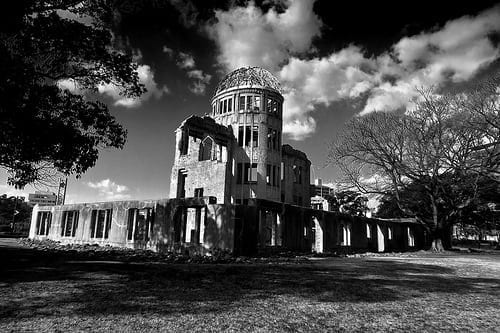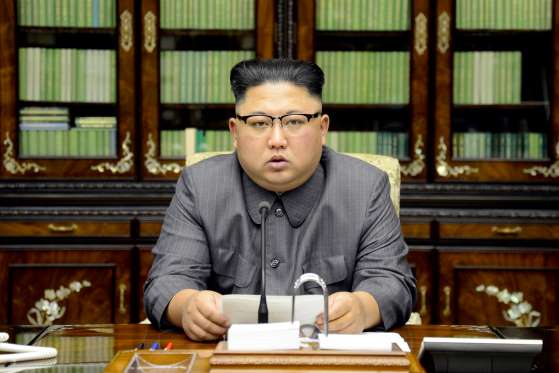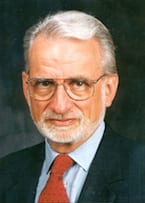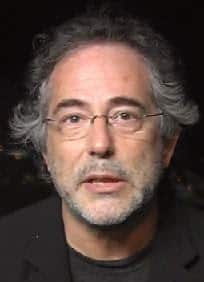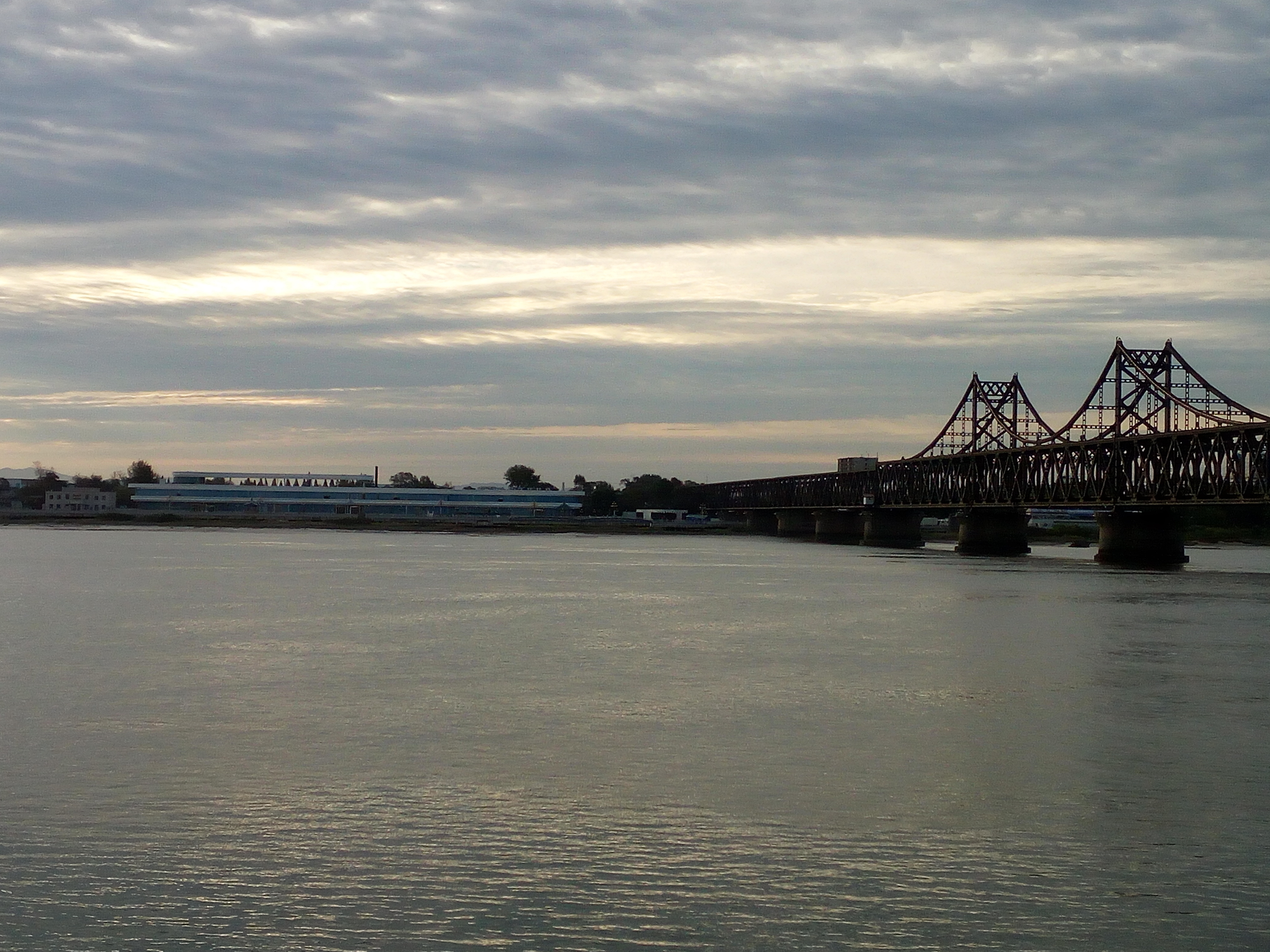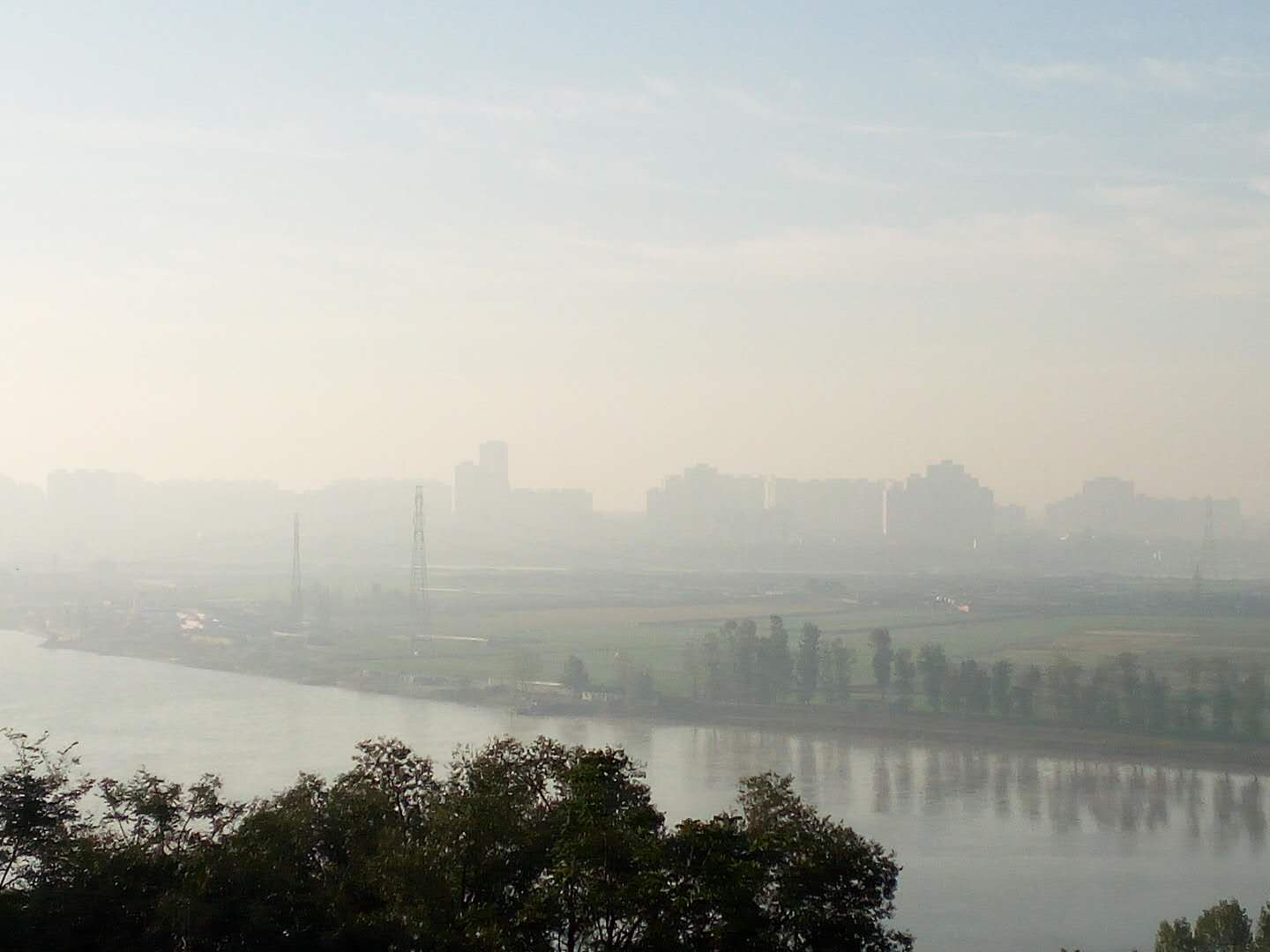In 2013 my bosses in Tehran sent me to Seoul, and I felt quite courageous: just like today, Seoul was about to be ground zero for thermonuclear war. And then - as we all know from the movie - the radioactive blast would awaken a very grumpy Godzilla.
I was sent because my bosses weren’t too pleased with my young colleague, who seemed to be more concerned about safeguarding his career than reporting the truth.
So I parachuted in - without a radiation suit, even, I tried to explain to this cub reporter, who thought he was hot stuff and had nothing to learn (I was NEVER like that, of course), that I was definitely not there to take his job: I do not care for a career in the mainstream media, nor to relocate to South Korea, so there should be no problem for us to work together temporarily.
The kid did not believe me, argued over even the most insignificant details, did one report, and then quit.
But that was about all the actual drama I can report from April 2013…because the people of South Korea did not expect nuclear war in the slightest. I cannot stress that enough. I assume it’s the same in 2017, even though the North now has the ability to mount a nuclear warhead on their missiles.
And I assume it’s like 2013 in the United States: judging from their professional and social media, many are convinced that nuclear war is around the corner. All of a sudden they care about Guam…but not enough to make it the 51st state, of course.
Back in 2013 I did 17 reports in 19 days, so it was a crash course in on-the-ground reporting in South Korea. Thanks to an excellent production team already in place, I interviewed top analysts, university professors, political activists and dozens of people on the street.
And almost every single report has been wiped clean from the internet. This process started this year, and it has affected top leftist sites like the World Socialist Web Site, The Greanville Post and many others. I have been able to provide a few web links, after much surfing.
But I wrote this article to provide 5 key things to know when discussing North Korea, but which you have probably never heard.
Key Fact #1: North Korea DID dismantle their nuclear program, but got nothing in return
[dropcap]T[/dropcap]o the amusement of my producers, in nearly every single report we included this 2007 footage of North Korea imploding the cooling tower of their nuclear reactor (check the 2:10 mark): it serves as undeniable proof that they had made genuine efforts at denuclearization and diplomacy. This dismantling was also verified by United Nations inspectors. (You can see the video in the Appendix, too).
What were they supposed to get for denuclearization?
Per the 2005 Agreed Framework: the right to peaceful uses of nuclear energy, peace and normalized relations with the US, economic cooperation with all parties, fuel and food, and the promise to “negotiate a permanent peace regime on the Korean Peninsula”.
What did they actually receive? Almost none of that….
The US refused to finally sign a peace treaty, normalize relations or lift their decades-old blockade of death. The US largely reneged on promises of food and fuel, even as food shortages continued in 2008 – even more deaths at the hands of Washington.
Hey - Khomeini, Khamenei, Ghadaffi, the Comanches – they all warned Pyongyang: You can’t trust the US!
I repeat: The US simply cannot be trusted. From Native Americans to North Korea, they simply do not keep their promises. If Trump tears up the Iran nuclear agreement totally – he just refused to certify the deal - how can anyone possibly be surprised?
The point is: there is irrefutable proof that North Korea shut down their nuclear program to advance diplomacy, but it was the US which responded with duplicity, belligerence and Barry Obama’s “pivot to Asia”.
Key Fact #2: Obama ramped up militarism in North Korea & undid Dubya’s diplomacy
[dropcap]I[/dropcap]n 2008, as Obama’s advertising team celebrated their Nobel Peace Prize, there was a widespread expectation that Obama would successfully expand the traditional Six-Party dialogue which governs the Korean conflict. God’s Right Hand for Peace on Earth (Barry Obama) would conclude the six decade-long state of war, sign a peace treaty, end the blockade and bring peace to the DMZ, “the last remnant of the Cold War”.
Reality check: Obama refused to even convene the Six-Party talks throughout his entire 8-year term.
At least Dubya attempted diplomacy…. In October 2008 Dubya even took North Korea off the list of terrorist nations, and Pyongyang continued to disable its nuclear complex. It’s clear that diplomacy was working well-enough, at least, for both sides.

The much adulated Obama, the liberals' darling, is simply a shameless charlatan and loyal shill for the plutocracy. Not to mention a Nuremberg-class war criminal. The man's hypocrisy knows no bounds.
But then Obama (and Hillary) took office in January 2009….
That’s when Washington-Pyongyang relations clearly and irrevocably changed. Of course I have no proof, but I think there must have been informal talks where the Obama team told Pyongyang that a new regime was in town, because things did a 180 immediately.
North Korea is the only nation which the UN Security Council has forbidden to launch even a peaceful satellite (gotta keep them socialists as technologically backwards as possible). But in April 2009, perhaps to get attention, perhaps testing the waters, perhaps totally innocently - they launched a communications satellite, one so dangerous that it dared to transmit revolutionary songs down to earth. North Korea had even warned the International Maritime Organization and the International Civil Aviation Organization of where 2 of the 3 rocket stages were going to fall.
But Obama seized on this and forced through UN Security Council sanctions that same month.
North Korea, fed up with waiting for never-arrived promises and angry over the sanctions, called the 2005 Framework a deception and withdrew.
They then made an underground nuclear test in May. Obama forced even more UN sanctions in June. This was the first “foreign policy test” of his presidency: well, he certainly failed to promote peace, but he certainly succeeded in promoting the historical US policy of belligerence, anti-socialism and militarism on the Korean Peninsula.
Again, whenever you hear that peace talks can only involve ending North Korea’s nuclear program, please remember: Pyongyang already tried that, and they got nuthin’ - their reaction is logical and should have been expected. North Korea is still blamed by mainstream media for “pulling out” of talks first, but that’s beyond absurd: Pyongyang justifiably feels it wasted several years dismantling its nuclear program, only to have the US break its promise of working to establish peaceful relations and stop the deadly blockade.
The Obama administration – whether by secret subversion or their belligerent early response – deserves condemnation for reversing the advances of Dubya and for not fulfilling their promise of peace. But who among US Democratic Party supporters has ever uttered this honest conclusion?
A very plausible accusation I can make is that Obama purposely provoked the North Korea crisis in order to justify his infamous “pivot to Asia” speech in November 2009. The idea that US Democrats aren’t just as tied to the military-industrial complex, and aren’t just as bloodthirsty as US Republicans, is Grade-A bullplop, and Obama proved that yet again.
Barry’s “pivot to Asia” didn’t mean better relations with countries along the Pacific Rim. Instead, it meant new US “super bases” in South Korea, more battleships in Singapore’s key shipping straits, surprisingly-restored relations with longtime Chinese ally Myanmar and increased troop levels in Japan, the Philippines and northern Australia.
But why would the Obama administration need to amplify its armed presence in East Asia? They already reportedly have some 90 bases in South Korea, 90 in Japan, 40 in Okinawa, a base in Guam, warships all around with the ability to launch missiles, the ability to send in nuclear submarines and nuclear bombers, over 50,000 troops in Japan and 40,000 troops in South Korea. More was needed, Barry…really?
The good news is that nearly everyone, everywhere has declared Obama’s “pivot to Asia” to be a failure. Obama claimed to be “the first Pacific president” and he failed, like so many other of his grandiose advertisements.
The appalling show of force was obviously primarily meant to intimidate China and to foment war hysteria against them across the region.
However, from North Korea’s point of view, it was justifiably viewed as preparation to an always-looming invasion. The enormous, omnipresent loomingness of this invasion must be remembered, and it is so horrifically unique that it truly requires the creation of a new vocabulary….
Key Fact #3: War games are not ‘games’ when YOU are the prey
[dropcap]E[/dropcap]very year for more than 50 years the US and South Korea have held war games exercises that simulate the occupation of North Korea. Operation Foal Eagle can involve up to 600,000 South Korean soldiers, more than 10,000 US troops, and can last for 2 months, as they did in 2013 when I was there.
These are called “war games”, but only an idiot would not realize how North Korea is looking on with bated breath and assuming an invasion is minutes away - there are 600,000+ armed soldiers pointing their guns in Pyongyang’s direction, after all. The psychological impact cannot be overstated.
These games are a staggering fact, are going on again now, and are staggeringly ignored by so-called “balanced journalists” in the West.
These totally-underreported war games completely undermine US claims that they are always simply reacting to North Korean aggression.
Amassing armies on a nation’s border – even if they don’t cross over - is hugely aggressive! Back in April 2013, with nuclear war apparently so close, one would assume that alleged peacenik Obama would have called off these provocative military drills: You would be mistaken in that assumption.
Here is perhaps the major reason why the crisis came to a head in 2013, and you won’t read this in the mainstream media either: In March 2013 the conservative South Korean government (headed by the daughter of the deceased, longtime US proxy/dictator) decreased their sovereignty by handing the US permission to make pre-emptive attacks against the North. Thus, the US was flexing this newfound muscle. They were placing even more pressure on North Korea, hoping they would make a mistake which would justify invasion.
That is, after all, what these war games are: “come knock this chip off my shoulder” so you can say, “but he made the first move.” Real Nobel Prize-level stuff, for sure….
The US soldiers symbolize what the US wants – the status quo on the Korean peninsula; militarization and not peaceful unification.
Finally, y’all just need to calm down: the war games are going on now and they always produce an increase in rhetoric. It just so happens that these are the first Trump-era war games, and we all see that such an event is right in his wheelhouse. But c’mon…you are not really threatened unless you are reading this from North Korea.
(Even with the vast US/SK preparations, my money would still be on North Korea: they have a 10-year mandatory military conscription. You can’t beat that training or indoctrination (or waste of time, money & energy to structurally weaken a socialist state.))
Key Fact #4: $6 trillion in rare metals and the #4 economy? Nobody wants that…
[dropcap]F[/dropcap]irstly, one must realize that North Korea is firmly opposed and regularly subverted by the US, Japan, South Korea, China and Russia – absolutely no nation has more major powers arrayed against them.
All of these nations use North Korea as a pawn in their own larger chess games. Koreans often refer to themselves as the “most invaded nation” with fair justification, and with fair justification many of them want to return to the peaceful days when they were the “hermit kingdom”.
People think of North Korea as a poor country – totally false: it is staggeringly rich.
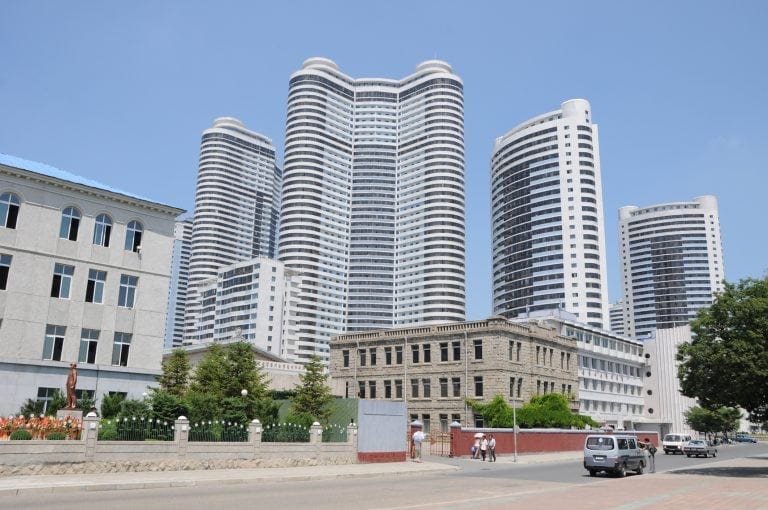
Free public housing in North Korea. Not exactly shabby.Has anyone seen how the poor live in the cities of the rich capitalist west? (Andre Vltchek)
North Korea is 85% mountains, and these mountains contain an estimated $6 trillion in mineral and rare earth wealth. That figure comes from the South Korean government, and has been upgraded to $10 trillion since I was there in 2013. So we are talking 6 to 10 times the estimated resource wealth of Afghanistan.
Wow….Now do you see why US capitalists will do anything to get it? Talk about a resource curse - not many nations have it worse than North Korea!
Coal, iron, gold copper, 200 valuable minerals - North Korea may not have oil, but they do have the 2nd-largest supply of rare earth metals which are essential for modern electronics. Every electronics producer wants a piece of that –the US, South Korea, Japan, Taiwan, etc. Toyota Prius cars as well as most electric and hybrid vehicles of the future need rare earth materials.
Thankfully, a Russian website preserved my report on this. I interviewed a South Korean professor and he said: “In my analysis, North Korea can survive for the next 100 years just by exporting their underground resources. So the maintenance of the Kim Jong-Un regime will be no problem – all they need is to sell their resources to China.”
China already gets these minerals, so the divided peninsula benefits them very clearly. China currently accounts for nearly 95% of the world’s rare earth production – half of all Chinese firms registered in North Korea are mining companies. The US-led blockade prevents modern equipment, prevents legitimate business, prevents controlled foreign investment, and keeps North Korea’s mines operating at 30% capacity, which all keeps prices down and Pyongyang subservient.

Cars made in North Korea—did you know they even made modern automobiles? Of course not. The talent and determination of the Korean people are legendary. (Andre Vltchek)
The only country which would really benefit from reunification would be South Korea. Of course, families would be reunited with families – can’t put a price on that. But who talks about this? Everyone just talks about how “crazy” the Kims are….
Anyway, the “crazy” Kims have created a society where 99% of the 25 million population is literate (thanks socialism!). They offer South Korea an intelligent workforce who is desperate for manufacturing jobs at the Kaesong Free Trade Area which pay $3 per hour – this is a hugely untapped human resource.

There would be no Toyota Prius without rare earth materials—a precious resource that China and North Korea possess in abundance.
So imagine the combination if the two nations were unified? Surely the North has plenty of construction projects they could undertake - reunification in any form will be hugely profitable to whoever leads it. A huge drop in military spending would provide yet another economic boost to the peninsula.
A report estimates that a unified, peaceful Korea would be 80 million strong and the #7 economy.
Before you start naysaying - don’t even bother to start. A unified Korea is a threat to Japan; China and Russia want their buffer against US military aggression, sure, but they also have clear economic concerns; rising nations like Indonesia, the Philippines and everyone else in the Pacific has reason to be scared as well.
And why only #7? Their combined population is greater than the UK and France – surely Korea would leapfrog them as quickly as Japan did decades ago? They could even out-produce Eurozone-stagnation-loving, rapidly-aging Germany.
And has Germany fallen from its US-assisted postwar perch since reunification? Not hardly, and quite the opposite
So it should be clear: NOBODY wants to see a Korean powerhouse. And that’s why the Six-Party Talks, even when the US deigns to attend, go nowhere. Six-Party Stranglehold is more like it….

The Okryu Children’s Hospital is a six-story, 300-bed facility across from Pyongyang’s towering maternity hospital. U.S. sanctions on the DPRK prevent further entry of machines like the pictured CT scan. While defiantly proud of the health care system, Dr. Kim Un-Song spoke of her anger as a mother: “This is inhumane and against human rights. Medicine children need is under sanctions.” (Courtesy Eva Bartlett. See her photo report on North Korea.)
While the short, medium and long-term solution for any leftist must be unification for Korea, come what may for the mostly-capitalist regional economies...if I must posit a Realpolitik alternative, I would wager that North Korea will fully enter the anti-Western China and Russia orbits when all three nations have grown even stronger than they currently are growing. China and Russia already want to incorporate North Korea's wealth into their economy, but they do not have the geopolitical influence to force it through…yet. Pyongyang will not and should not tolerate the poor terms they have been forced to accept from these two semi-allies in recent years, so they need time to improve their situation as well. South Korea will eventually - if only partially - join in this regional harmony as well, as they remain cut off from Eurasia by land, to their obvious self-detriment. The US can forbid Seoul for now, but not when the One Belt, One Road project gets humming.
Key Fact #5: Fake-leftists have shamefully abandoned all Koreans, not just the North
[dropcap]W[/dropcap]ith the type of reports I do, if I stayed to work in South Korea I’d soon be in jail – that’s what I was told by journalists there.
The only report of mine which can be easily found online is this one: “Is There Freedom of Speech in South Korea?”
The answer is a resounding “no”.
Just like West Germany, Japan and other US proxies, communism was totally banned in South Korea (in 1948). Openly supporting North Korea is a crime, as is owning a book published in North Korea. Just like all such laws, all leftism, human rights groups, and labor movements are ruthlessly suppressed. In 2002 a South Korean soldier got two years in prison for telling his fellow soldiers that the United States is to blame for the division of Korea – the chilling effects of such an episode should be clear, even though only the most rabidly-anti-communist South Koreans believe otherwise.
Of course you never hear any this in the West - it’s the North which is oppressive, right?
I have never seen a country where leftist demonstrations gathered so few people than in Seoul - this means those brave enough to go are extremely courageous.
So if South Koreans are not permitted to rectify the enormous misperceptions about the situation in Korea, it is incumbent on leftists outside of Korea to do it for them. If we won’t stand up for leftism in all of Korea, who can?
Sadly, how many people do you know are openly defending North Korea? And even though they face no actual repression?
I would say the best start to rewire your brain about Korea is to start with the Korean Conflict (War). The US killed 20% of the population; they committed horrendous war crimes by bombing dams to create huge floods and force famines; the 3 years of carpet bombing, maybe the worst in history, was so bad that the Communists had to tell people to stop rebuilding their homes and go live in caves because rebuilding just provided bombing targets and thus more chances to be murdered.
And this was after a brutal Japanese occupation for 35 years, which only ended with World War II.
So, North Korean grandparents have seen some traumatic times and may be more prone to Alzheimer’s for all I know, but keep in mind that they are still socialists - how many elderly fake-leftists in the West have given up the fight over nothing at all?
This is not me droning on: The Left MUST not continue to abandon North Korea and their people. As noble as blockaded, revolution-supporting Cubans are, their sacrifices really cannot be compared with North Koreans.
Anyway, we NEED the North Korean mentality: When reunification comes, maybe the new Korea is not a socialist state, but does it have to be modern Germany?
The German far-right just took 3rd place in national elections; their people (mistakenly) support the imperialist gutting of places like Greece; the former East Germany has been literally depopulated and denuded of leftist thought.
In a reunified Korea, only Northerners can insist on avoiding a repeat of this terrible scenario. With global support, a reborn Korea can provide a new, more leftist-model of capitalism, or perhaps even just a right-wing model of socialism? To call these stupid dreams would be stupid on your part – politics are real, and they do change.
The incredible resilience of the North and the tremendous innovation of the South has proven that Korea certainly has very much to teach the world. Who is listening? Who refuses to keep suppressing them?
What must change is our unwillingness to defend North Korea – which is truly pathetic. You don’t have to uphold the North Korean model 100% - no country is perfect – but there is infinite proof that the North is the victim of tremendous, sustained, ill-informed, genocidal, imperialist aggression.
But pity poor South Korea
[dropcap]S[/dropcap]eoul was infinitely more advanced than any Western country I’ve stayed in. They don’t even use keys for doors – it’s all digitized. They don’t use keys, I said! Fleets of new buses transport work-obsessed, coffee-slamming, chain-smoking workers to their job where they work the 2nd-most hours in the world. Seoul was rebuilt multiple times in the 20th century, and it is pretty brand-spanking new. Iranians I know visit Seoul, then go to the US – they are hugely disappointed at American backwardness. Korea’s K-pop music beats French techno or American rap, at least. Korean women don’t need the “add an eyelid” cosmetic procedure to be beautiful – although I must admit, their newly-enormous brown eyes are pretty compelling (still, don’t do it). South Korea, after Japan, is the top backer of bitcoins, and if any society is digital-ready for crypto-currencies and poised to profit from the block chain revolution, it is South Korea.
So how can the world’s #11 global economy be “poor”?
Well, why is Iceland richer than the Eurozone nations? They may be small and isolated, but they haven’t given up their democratic sovereignty.
“The fundamental sovereignty, deciding on war or peace - it’s not up to the South Korean government. It’s up to US, because if the war broke out on Korean peninsula, the wartime control rights transfer to US soldiers, US government. That’s the fundamental problem,” said a peace activist I interviewed in 2013. (I don’t want to reprint names here… leftism is dangerous in South Korea. You’ll just have to trust me, and I have a better record with anonymous sources than even The New York Times.)
So South Korea doesn’t really have control over its own future. They are estranged from their families in the north, they have 40,000 US troops holding them at gunpoint, they have been force-fed the American model of societal and cultural construction, they are denied free political speech, and they are denied the chance to be more influential and prosperous than they currently are. And the reality is that without reunification, war – hot or cold – is the only future.
South Koreans know this, and they told me all this, but it cannot be reported in the West. It certainly cannot be reported in South Korea - permanently hostility towards Pyongyang has been institutionalized in South Korean media, of course.
I did visit the DMZ for a report, and I did speak with random families who went there just to pay homage to their relatives across the border. It’s an extremely sad scene, and no one there was blaming the “crazy” Kim family. Here’s a few quotes I got at the DMZ which should pull at your heartstrings:
“I wish we could reunify because it would make the world more peaceful. I totally agree with reunification because there are parents who haven’t seen their children since the Korean War.”
“It will be so wonderful when we are unified again. Friends and families can reunite and share our histories and our cultures. But I don’t know how we can achieve it politically? “
“The Korean people's long-cherished desire is for reunification. Even though unification will be a long process, I would be so happy if we could just cross the border. This confrontation has taken too long, and the gap is widening between us.”
But I got the exact same type of yearning quotes from strangers on Seoul streets. Support for reunification is simply never going to go away, because the Koreans view themselves as one people…who have been divided by foreigners.
I guess the long-term plan of the US is to simply keep division as long as possible? Snap polling does say that the younger generation is less and less interested in reunification, and that makes sense. But I’ll put my faith in deliberative polling – which reveals that 91% of respondents ultimately decided that “reunification is necessary”- in the intelligence and compassion of the Korean people, and in the idea that another 70 years of division is not only impossible but that it won’t be enough to create the permanent rift which the US is trying to provoke.
To sum up: The problem is not that North Korea won’t play nice - it’s that the US won't, and never has.
I have explained how a reunited Korea would create a mega-boom for all Koreans. Even if the Koreans and me yawn at the Western media’s Chicken Little-worries about Trump’s tweets, reunification would indeed eliminate one of the world’s most heavily-fortified areas and possible flash points. It would also free Korea from foreign occupation for the first time in more than a century.
I wish them luck and success. But most Westerners have been so misled that they won’t even wish that for North Korea from half a world away….
I think changing that is a good place we can start.
Postscript
[dropcap]I[/dropcap] recently checked in with a journalist friend in South Korea, who knows the country about as well as any non-Korean can, to find out what the mood is during this latest so-called “crisis”.
"It's much worse than 2013, I think...because of Trump," he or she said.
(Again, leftism is practically a crime in South Korea, and associating with people like myself is generally frowned upon worldwide, so you’ll just have trust my anonymous source.)
"People worry about the Americans doing something much more then they worry about the North Koreans doing something, although most people are upset about North Korea going ahead with their nuclear missile programs."
And voila…so it truly is the same old story: Washington remains the biggest source of aggression, fear, and division on the peninsula, and NOT the North.
"A year ago most South Koreans did not want THAAD, the controversial antiballistic US missile system: now the majority of South Koreans do want THAAD...and nukes."
And this is probably one of the main hidden reasons for the uptick in American belligerence: they need a place to showcase this expensive, highly-subcontracted weapons system.
The main point is that ratcheting up the war hysteria is what the US always does in Korea. But hopefully this article reminds everyone that Trump isn’t doing anything which hasn’t been done with American nuclear weapons for 60+ years, so don’t permanently relocate to your bomb shelter just yet.
What is absolutely certain is that Washington benefits from Korea's division more than anyone, which is why they are the most committed to keeping the peninsula disunited.
Hopefully this article encourages you to at least defend, if not openly support, leftist North Korea’s position.
Now that this attempt at balance and sympathy (and leftism) is over, let’s all resume reading the typical "it’s all because Kim and Trump are crazy" analyses, which can be found everywhere in the West, from the top mainstream pundit to the nightly routine of the standup comedian/clown.

 In his zeal to prove to his antagonists in the War Party that he is as bloodthirsty as their champion, Hillary Clinton, and more manly than Barack Obama, Trump seems to have gone “play-crazy” -- acting like an unpredictable maniac in order to terrorize the Russians into forcing some kind of dramatic concessions from their Syrian allies, or risk Armageddon.However, the “play-crazy” gambit can only work when the leader is, in real life, a disciplined and intelligent actor, who knows precisely what actual boundaries must not be crossed. That ain’t Donald Trump -- a pitifully shallow and ill-disciplined man, emotionally handicapped by obscene privilege and cognitively crippled by white American chauvinism. By pushing Trump into a corner and demanding that he display his most bellicose self, or be ceaselessly mocked as a “puppet” and minion of Russia, a lesser power, the War Party and its media and clandestine services have created a perfect storm of mayhem that may consume us all.— Glen Ford, Editor in Chief, Black Agenda Report
In his zeal to prove to his antagonists in the War Party that he is as bloodthirsty as their champion, Hillary Clinton, and more manly than Barack Obama, Trump seems to have gone “play-crazy” -- acting like an unpredictable maniac in order to terrorize the Russians into forcing some kind of dramatic concessions from their Syrian allies, or risk Armageddon.However, the “play-crazy” gambit can only work when the leader is, in real life, a disciplined and intelligent actor, who knows precisely what actual boundaries must not be crossed. That ain’t Donald Trump -- a pitifully shallow and ill-disciplined man, emotionally handicapped by obscene privilege and cognitively crippled by white American chauvinism. By pushing Trump into a corner and demanding that he display his most bellicose self, or be ceaselessly mocked as a “puppet” and minion of Russia, a lesser power, the War Party and its media and clandestine services have created a perfect storm of mayhem that may consume us all.— Glen Ford, Editor in Chief, Black Agenda Report 
